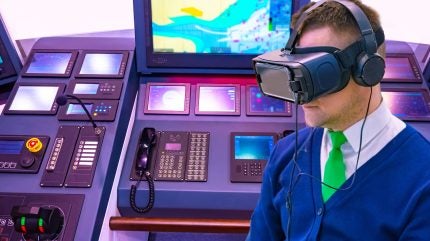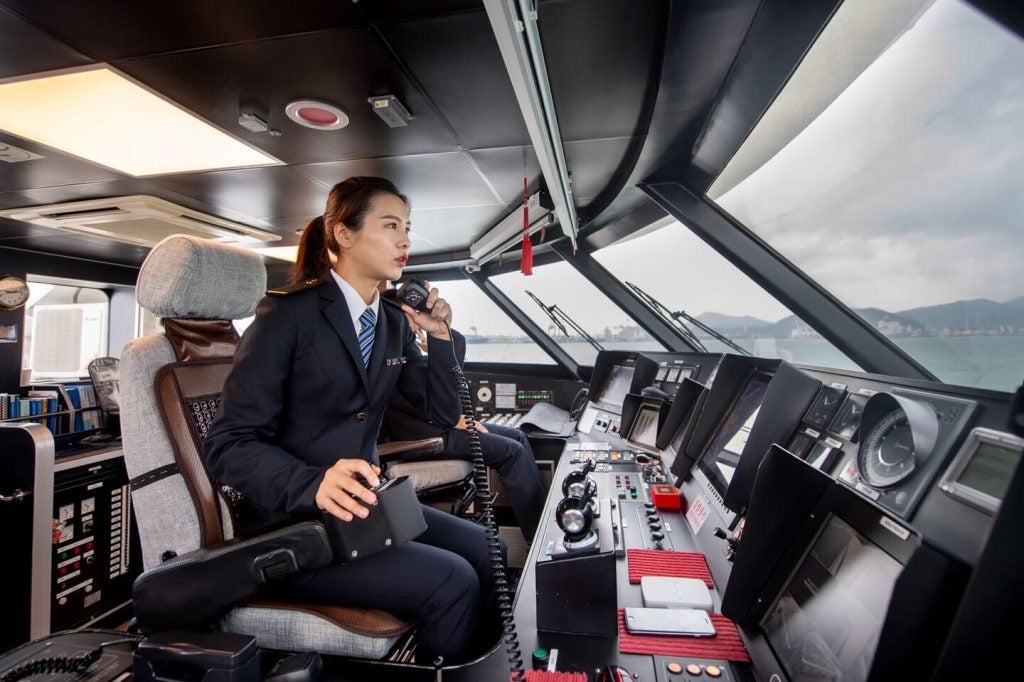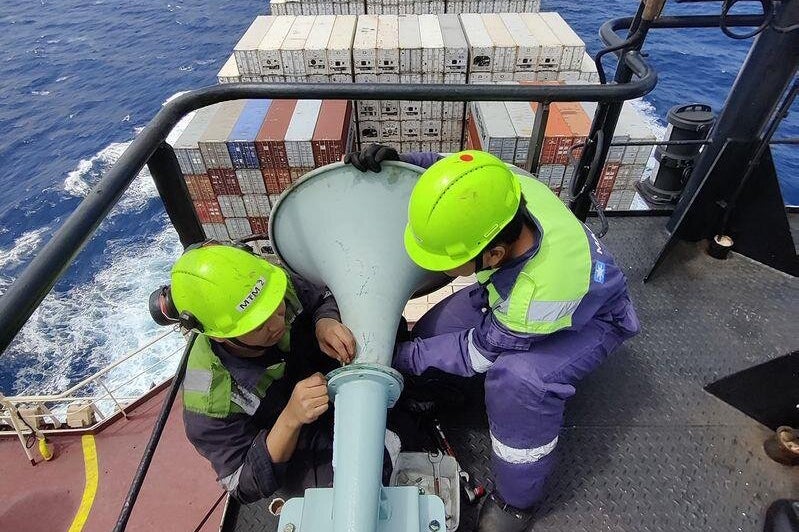
As part of a lifelong learning process, seafarers need to be prepared to adapt to the changing nature of work. With the maritime industry embracing digitalisation and automation, as well as exploring the use of alternative fuels, new skills and competencies will be needed, and seafarer training methods will have to adapt.
The International Transport Workers’ Federation (ITF) and the World Maritime University (WMU) report, ‘Transport 2040 – Impact of Technology on Seafarers – The Future of Work’, highlights that these changes will affect seafarers differently depending on their profession, rank, and role.
The extent of change should not be overlooked however, with the International Maritime Organisation (IMO) anticipating that the industry’s bid to increase efficiency and sustainability will require a substantial wave of retraining on a global scale.
This is backed up by the findings of a study by the classification society DNV and the Singapore Maritime Foundation (SMF). This reported that 81% of the seafarers questioned expressed a need for partial or complete training to effectively handle the technologies expected to be deployed on future ships, while over 85% stated a need for training on new and emerging fuels.
What skills should seafarers look to gain?
Changes in roles and tasks will influence what’s required, notes Kirsten Brigitte Strømsnes, business development leader for safety at the DNV Maritime Advisory.
“If you’re likely to be dealing with electrically driven propulsion systems, then you’ll need electrical engineering expertise rather than expertise for a traditional combustion engine. If you’re dealing with increased automation and remote operation then you’ll need additional IT/IoT (Internet of Things) competence,” Strømsnes explains.

US Tariffs are shifting - will you react or anticipate?
Don’t let policy changes catch you off guard. Stay proactive with real-time data and expert analysis.
By GlobalDataWhen it comes to the digital skills needed, then data fluency, digital operation, and basic software and organisational competence will all be key, as well as cybersecurity training, according to Dr Momoko Kitada, head of the World Maritime University’s (WMU) maritime education and training specialisation.
“This is one of the biggest concerns for shipowners,” says Kitada. “The corresponding group of the comprehensive review of the International Convention on Standards of Training, Certification and Watchkeeping for Seafarers (STCW), 1978, advise including ‘cybersecurity awareness’ as a standalone area of developing competencies, in addition to ‘21st century and interpersonal skills’, which covers digital skills, communications, information management, and the ability to adapt to a changing work environment.”

When it comes to alternative fuels, seafarers need to learn how they behave and should be handled, as well as their related risks and how to manage new emergency situations, like toxic releases from ammonia.
“Handling new fuels will require additional skills and understanding of the dangers involved, as some alternative fuels are more volatile and difficult to handle than traditional options,” notes Fabrizio Barcellona, ITF’s seafarers and inland navigation sections coordinator.
It’s difficult to predict which technologies or fuels will dominate in the long run, but the DNV/SMF study recommends that training should be prioritised for the fuels that are likely to be predominant in the current decade, such as LNG and batteries.
Barcellona, on the other hand, points to the likelihood of a multifuel future, and therefore “it’s important to have a base level of training for everyone”.
Seafarer Training: ensuring a just and equitable transition
A comprehensive review of the 1978 International Convention on Standards of Training, Certification and Watchkeeping for Seafarers (STCW) is currently underway to identify gaps and ensure the competencies within the Convention and STCW Code are adapted to fit the current transitions.
So far, one area that has been identified is new fuels and equipment that may require new standards, functions and levels of responsibility. Another is the facilitation, flexibility, and quality of onboard, shore-based, and workshop skills training – including the use of simulators.
But one of the key challenges is ensuring a just and equitable transition to digitalisation, automation, and improved sustainability that leaves no one behind. This means making sure seafarers from all countries have access to the right training, which is easier said than done.
We want to make sure everyone is given a fair opportunity for employment in the future.
One challenge is that some regions have little control over trainers, which nefarious organisations and individuals are taking advantage of.
“We found seafarers in Africa that had paid $30,000 for training that wasn’t even needed and were told completing this would guarantee them a job,” Barcellona notes. “There’s a proliferation of institutions that imply a position post-training is a given, when in fact there is no guarantee of work.
“Another issue is the more training you impose, the higher the cost. You risk pricing people out of the industry. This isn’t an issue for Europe, the Americas, or Asia, where a structure is already in place, but primarily in Africa.
“We want to make sure everyone is given a fair opportunity for employment in the future,” he continues. “Maybe a combination of levies, or perhaps the IMO creating a global fund for training control and availability, is the right way to go.”
The Maritime Just Transition Task Force
Work is already underway to help equip seafarers with the necessary skills as shipping transitions to zero emissions, however. The Maritime Just Transition Task Force is a collaborative project that aims to develop a comprehensive baseline training framework for seafarers in decarbonisation. This is currently focusing on three alternative fuels: methanol, ammonia, and hydrogen.
This will result in a training framework for seafarers, as well as an instructor handbook for maritime training organisations, according to IMO spokesperson Natasha Brown.
“The WMU will provide academic expertise and a large number of organisations are involved through a global industry peer learning group,” Brown says. “Once developed, the framework will first be tested out in Asia through a group led by the WMU, with support from the IMO Maritime Technology Cooperation Centre (MTCC) Asia, with the aim to expand it globally across all MTCCs and relevant organisations.”
Specialised training may be limited currently, but there is still some available, and more to come. For example, the IMO has developed a Train the Trainer (TTT) Course on Energy Efficient Ship Operation, while courses developed by the Global Industry Alliance to Support Low Carbon Shipping are free to access on the UNCC: Learn e-learning platform.

Seafarers are the people on the front line of shipping, operating ships to ensure all safety and environmental protection standards are upheld. Without them, shipping simply does not function, therefore trained seafarers are vital, notes Brown.
“If we don’t invest in their skills, not only will the safety and environment be impacted, but also we won’t be able to retain existing seafarers and certainly not attract new ones, which would have huge, long-lasting consequences,” she says.
There may be rough waters ahead, with many unknowns, but across the industry, steps are being taken to help train those are the heart of the maritime sector.
“As a former seafarer myself, I see opportunities, and a time of positive change,” Kitada concludes.
This article was originally published in our digital magazine, Ship Technology Global. You can subscribe to the magazine for free by clicking here.



